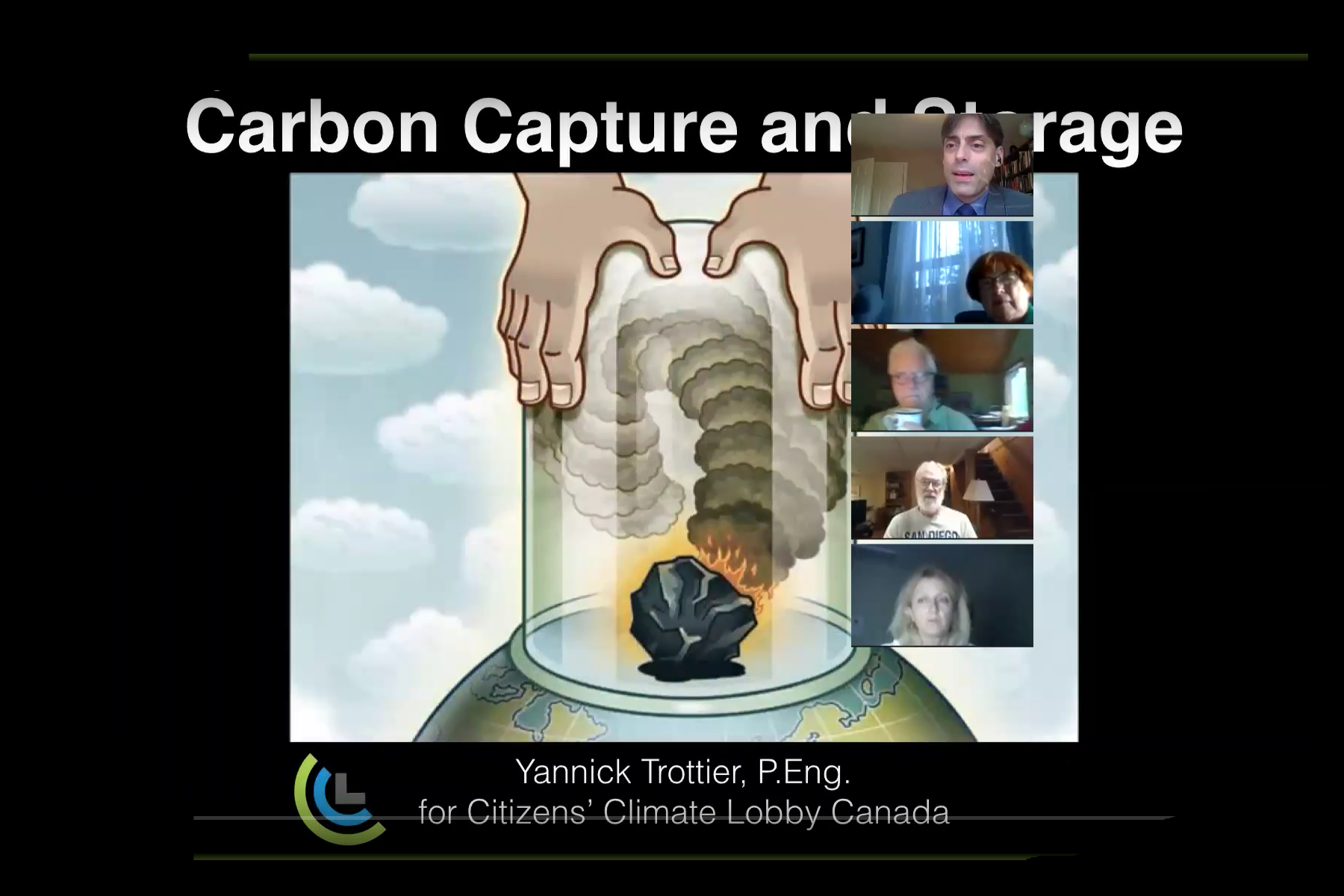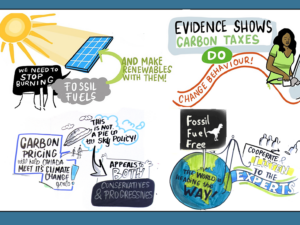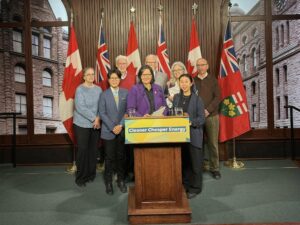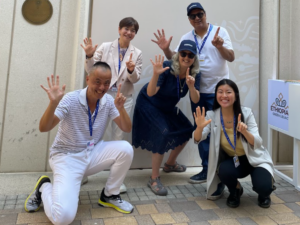In early June 2017, the Standing Committee on Natural Resources (RNNR) in the House of Commons tabled its unanimous report on “De-risking clean tech adoption in Canada“. Upon reading the RNNR report it became obvious to a couple of our Canadian volunteers that we needed to take a deeper look at Canada and Carbon Capture and Sequestration (CCS) this summer. Yannick Trottier had previously educated us about carbon capture and sequestration at our 2014 Canadian National Conference. He agreed to update his presentation and write four detailed laser talks for us regarding CCS for our Canadian August Action sheets and then give us a presentation at the end of the month. Carbon Capture and Storage (CCS) is a general term for a range of different industrial processes that can separate carbon dioxide (CO2) emissions from smokestacks and store it underground indefinitely as toxic waste. The science is clear, we will need to deploy CCS in order to avoid the 2C limit. When combined with biofuels, CCS can permanently reduce CO2 levels in the atmosphere. As well, Canada is a world leader in CCS. An August 2017 letter in Nature highlighted that without policy support such as adequate carbon pricing, CCS deployed at scales required to meet climate targets is unlikely. CCL does not oppose or support any specific technologies: we are technology agnostic. We want carbon pollution to reflect its true cost on society. CCL is not a think tank. We are a grassroots mobilization organization that takes our cues from peer-reviewed and consensus literature. We will continue to lobby for the key elements in the carbon fee and dividend policy as written that we have been lobbying for since September 2010. About Yannick:
Mr. Yannick Trottier holds a degree from MIT in aerospace engineering, and completed a twelve-week MIT class on climate science. He was a co-founder of Spectral Applied Research, a high-technology startup that built the MOST space telescope and operated a LIDAR ozone observatory in the Arctic. Spectral was sold to Oxford Instruments in 2013. Mr. Trottier also worked on nuclear reactors for 9 years before committing himself to the climate change cause. Through the Climate Reality Project, Mr. Trottier has given guest lectures at universities in China and Canada, chapters of Professional Engineers of Ontario, international corporations, and other professional groups. He has been a member of Citizens’ Climate Lobby since 2013, and as the chair of the Greater Toronto Chapter, he led a team of 50 lobbyists working to convince the Canadian government to setup a carbon fee and dividend system. He was profiled in the official magazine of the Ontario Society of Professional Engineers for his work on climate change and currently chairs their Environmental Committee which prepares whitepapers on climate policy for the provincial government.
CCL Canada Education: Carbon Capture and Sequestration with Yannick Trottier
Home » CCL Canada News » CCL Canada Education: Carbon Capture and Sequestration with Yannick Trottier
CCL Canada Education: Carbon Capture and Sequestration with Yannick Trottier
Posted on August 31, 2017 in CCL Canada Education Call






